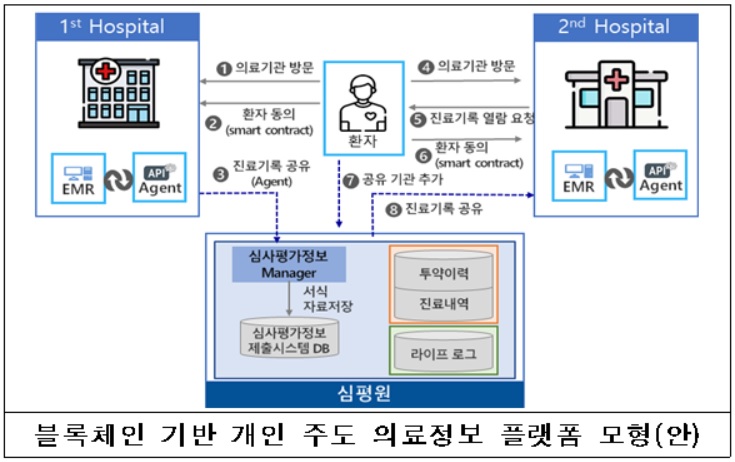Introduction
Imagine if you could have instant access to your entire medical history, securely stored and accessible from anywhere. No more fumbling through paper records or waiting for appointments to get the information you need. That’s the promise of healthcare blockchain technology – a revolutionary way to manage and share medical data that’s secure, efficient, and empowers patients.
Blockchain, best known as the technology behind cryptocurrencies like Bitcoin, is a distributed ledger system that records transactions across a network of computers. Each transaction is linked to the previous one, creating a secure and tamper-proof record.
In healthcare, blockchain technology can be used to create a secure and transparent system for storing and sharing medical records. Patients would have control over their data, and doctors could access it from anywhere, anytime. This would streamline patient care, reduce costs, and improve the quality of care.
Benefits of Blockchain Technology in Healthcare
Blockchain technology offers several benefits for the healthcare industry, including:
Challenges of Implementing Blockchain Technology in Healthcare
While blockchain technology has the potential to revolutionize the healthcare industry, there are some challenges that need to be addressed before it can be widely adopted.
Despite these challenges, blockchain technology has the potential to transform the healthcare industry. By addressing these challenges, we can unlock the full potential of this technology and improve the lives of millions of people around the world.
Healthcare Transformed: Blockchain’s Revolutionary Impact on Finance
In a rapidly evolving healthcare industry, blockchain technology is emerging as a transformative force, holding immense promise for revolutionizing the way healthcare finance is managed. This cutting-edge technology offers a host of benefits that can enhance efficiency, accuracy, and accountability within the complex healthcare financial landscape.
Benefits of Blockchain in Healthcare Finance
Blockchain’s distributed ledger system, where transactions are securely recorded in an immutable blockchain, offers significant advantages for healthcare finance:
Streamlining Billing and Claims Processing
Blockchain’s capabilities don’t stop there. It can also streamline the notoriously tedious and error-prone process of billing and claims processing. By creating a shared and immutable record of transactions, blockchain eliminates the need for multiple copies of records, reducing the risk of errors. Moreover, the automated nature of blockchain transactions can accelerate the claims processing cycle, leading to faster reimbursement for providers and reduced administrative costs for insurers.
Reducing Fraud and Errors
Fraud and errors are rampant in healthcare finance, costing the industry billions of dollars annually. Blockchain’s inherent security features can help combat this problem. The immutability of the blockchain ensures that once a transaction is recorded, it cannot be altered or deleted, making it extremely difficult for fraudsters to manipulate data. Additionally, the decentralized nature of blockchain eliminates single points of failure, reducing the risk of hacking and data breaches.
Improving Transparency and Accountability
Transparency and accountability are essential for efficient and ethical healthcare finance. Blockchain provides a platform for creating a comprehensive audit trail of all transactions, allowing auditors and regulators to easily track and verify the flow of funds. The immutability of the blockchain ensures that this audit trail is tamper-proof, fostering greater trust and accountability among stakeholders.
Healthcare Blockchain Technology: Revolutionizing the Healthcare Industry
In the fast-paced world of healthcare, technology is constantly evolving to meet the ever-changing needs of patients and healthcare providers alike. One such technological breakthrough is blockchain, a decentralized, digital ledger that has the potential to revolutionize the industry.
Blockchain technology can significantly enhance healthcare finance by streamlining processes and increasing efficiency. Current use cases include:
Current Use Cases of Blockchain in Healthcare Finance
Blockchain technology offers a multitude of benefits for healthcare finance, including the potential to streamline patient billing, track insurance claims, and facilitate drug supply chain management. By leveraging the power of blockchain, healthcare providers can significantly enhance efficiency, reduce costs, and improve patient outcomes.
For instance, blockchain can be used to automate patient billing processes, eliminating the need for manual data entry and reducing the risk of errors. Blockchain technology can also be used to create a secure and transparent system for tracking insurance claims, ensuring that providers receive timely payment for services rendered.
Furthermore, blockchain can be used to create a more efficient and secure drug supply chain. By tracking the movements of drugs from manufacturers to distributors to pharmacies, blockchain technology can help prevent counterfeiting and ensure that patients receive genuine medications.
In addition to the benefits mentioned above, blockchain technology can also help to reduce healthcare costs. By automating processes and eliminating the need for intermediaries, blockchain can help to streamline healthcare delivery and reduce overhead costs. This can ultimately lead to lower costs for patients and taxpayers.
The use of blockchain technology in healthcare finance is still in its early stages, but the potential benefits are significant. By leveraging the power of blockchain technology, healthcare providers can improve efficiency, reduce costs, and improve patient outcomes.

No responses yet